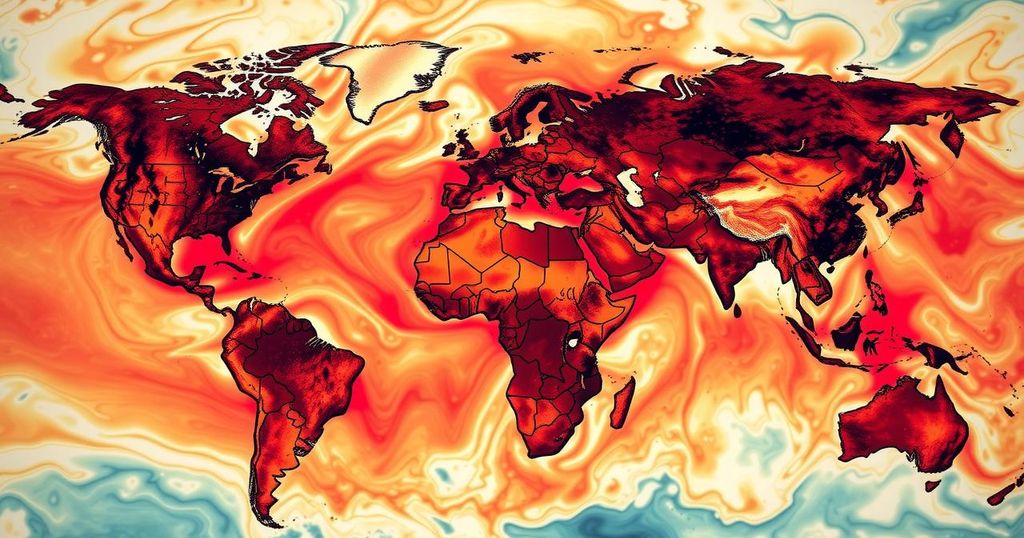In 2024, global temperatures exceeded 1.5°C above pre-industrial levels for the first time, marking a critical milestone in climate change. The year was characterized by unprecedented heat, extreme weather events, and rising greenhouse gas emissions, indicating an urgent need for nations to take effective action to combat climate change. The report emphasizes a call for immediate political response to avert further climate disasters.
In 2024, the Earth experienced its first full year of global temperatures surpassing 1.5 degrees Celsius above pre-industrial levels, as confirmed by the European Union’s Copernicus Climate Change Service (C3S). This significant milestone indicates unprecedented climate conditions influenced by human activities. The director of C3S, Carlo Buontempo, emphasized that every month in 2024 was the warmest or second warmest recorded for that respective month, resulting in an average temperature increase of 1.6 degrees Celsius compared to the period of 1850 to 1900.
The dire climate situation was compounded by extreme weather events across the globe, including devastating wildfires in the United States and Latin America, torrential floods in Europe and Asia, and heatwaves resulting in substantial casualties. Despite global commitments under the Paris Agreement to limit temperature increases, greenhouse gas emissions continue to rise, indicating that the targets are increasingly at risk.
Buontempo reinforced that the historical breach of the 1.5-degree threshold is not necessarily a breach of the Paris Accord but serves as a grave warning requiring immediate action. The climate crises, from storm intensities to flooding, underscore the serious implications of climate change and the urgent need for nations to adhere to their commitments. Notably, carbon dioxide levels in the atmosphere reached a record high. Climate experts predict that without significant changes in emissions management, subsequent years may follow a similar pattern of accelerated warming.
The report highlights a crucial turning point in global climate history, marking 2024 as the first full year since the Industrial Revolution where global average temperatures exceeded a 1.5-degree Celsius increase compared to pre-industrial levels. This situation is exacerbated by human-induced emissions of greenhouse gases, primarily from fossil fuels. Such changes in temperature are compounding the frequency and intensity of extreme weather events, requiring immediate attention from governments and policymakers worldwide. Understanding the implications of this data is paramount, as it underscores the increasing severity of climate-related disasters and the need for urgent strategies to combat climate change.
In summary, the year 2024 represents a critical juncture in climate science and policy, demonstrating the alarming reality of exceeding 1.5 degrees Celsius of warming. This event not only signals potential future environmental catastrophes but also highlights the necessity for more robust action from global leaders to meet international climate targets. The scientific community’s consensus on climate change’s urgent management cannot be overstated, as continued inaction may lead to irreparable damage to the planet.
Original Source: sightmagazine.com.au






